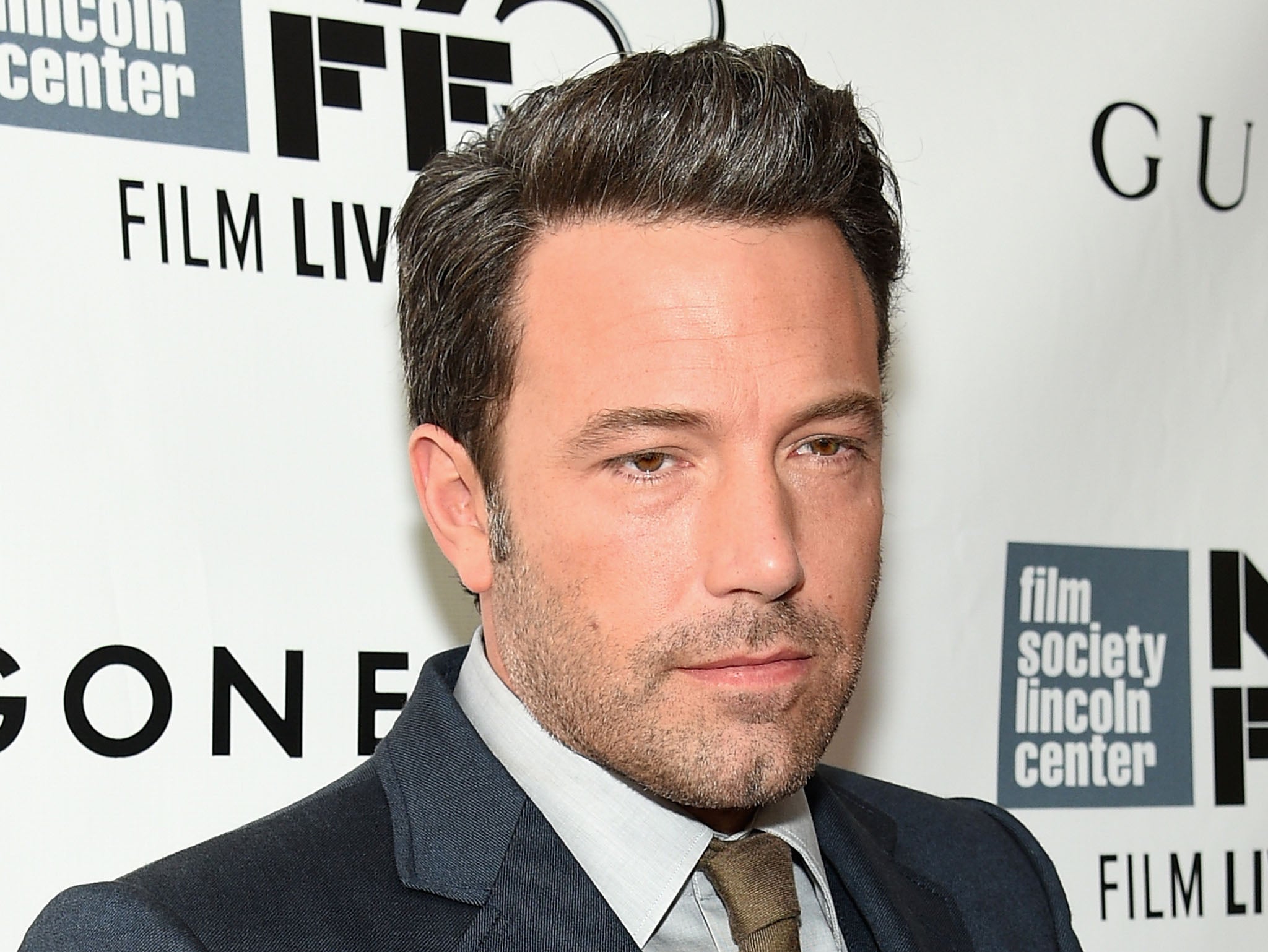Ben Affleck admits to censoring details of his slave-owning ancestry from a broadcast family tree documentary
Emails sent on behalf of the Oscar-winning actor and director by Sony pictures were published by pro-transparency group Wikileaks recently

Your support helps us to tell the story
From reproductive rights to climate change to Big Tech, The Independent is on the ground when the story is developing. Whether it's investigating the financials of Elon Musk's pro-Trump PAC or producing our latest documentary, 'The A Word', which shines a light on the American women fighting for reproductive rights, we know how important it is to parse out the facts from the messaging.
At such a critical moment in US history, we need reporters on the ground. Your donation allows us to keep sending journalists to speak to both sides of the story.
The Independent is trusted by Americans across the entire political spectrum. And unlike many other quality news outlets, we choose not to lock Americans out of our reporting and analysis with paywalls. We believe quality journalism should be available to everyone, paid for by those who can afford it.
Your support makes all the difference.Ben Affleck has confessed that he did ask TV bosses to conceal the information that one of his ancestors was a slave owner because he was "embarrassed" by his family history.
In leaked Sony emails obtained by Wikileaks, the Oscar-winning director and actor demanded that producers leave some of the details about his heritage out of his story for programme Finding Your Roots.
The request appeared to upset Henry Louis Gates, the host of the show, who is a Harvard history professor and a scholar of African and African American history. Even so, the details were omitted from the final broadcast in September 2014.
Affleck has since addressed the revelations.
“After an exhaustive search of my ancestry for Finding Your Roots, it was discovered that one of my distant relatives was an owner of slaves,” he wrote on Facebook.
“I didn't want any television show about my family to include a guy who owned slaves. I was embarrassed. The very thought left a bad taste in my mouth,” he continued.
“Skip [Professor Henry Louis Gates Jr.] decided what went into the show. I lobbied him the same way I lobby directors about what takes of mine I think they should use. This is the collaborative creative process. Skip agreed with me on the slave owner but made other choices I disagreed with. In the end, it's his show and I knew that going in. I'm proud to be his friend and proud to have participated.”
“It's important to remember that this isn't a news program,” his post continued. “Finding Your Roots is a show where you voluntarily provide a great deal of information about your family, making you quite vulnerable. The assumption is that they will never be dishonest but they will respect your willingness to participate and not look to include things you think would embarrass your family.
“I regret my initial thoughts that the issue of slavery not be included in the story. We deserve neither credit nor blame for our ancestors and the degree of interest in this story suggests that we are, as a nation, still grappling with the terrible legacy of slavery. It is an examination well worth continuing. I am glad that my story, however indirectly, will contribute to that discussion. While I don't like that the guy is an ancestor, I am happy that aspect of our country's history is being talked about.”
The show's network WNET and PBS have since announced that they will start an internal review into the circumstances that led to the editing of the Affleck episode.
“This matter came to PBS' attention on Friday morning, April 17,” a statement read. “Professor Gates and his producers immediately responded to our initial questions. In order to gather the facts to determine whether or not all of PBS' editorial standards were observed, on Saturday, April 18, we began an internal review. We have been moving forward deliberately yet swiftly to conduct this review.”
The emails were published by WikiLeaks, which uploaded up to 30,000 such messages involving Sony last summer. The 2014 cyber attack was blamed on affiliates from North Korea. However, it is not known how the new messages were acquired by WikiLeaks.
Julian Assange, editor-in-chief of the pro-transparency group, justified publishing the leaked conversation about Affleck because he felt it showed the huge influence large media corporations have.
Subscribe to Independent Premium to bookmark this article
Want to bookmark your favourite articles and stories to read or reference later? Start your Independent Premium subscription today.
Join our commenting forum
Join thought-provoking conversations, follow other Independent readers and see their replies
Comments